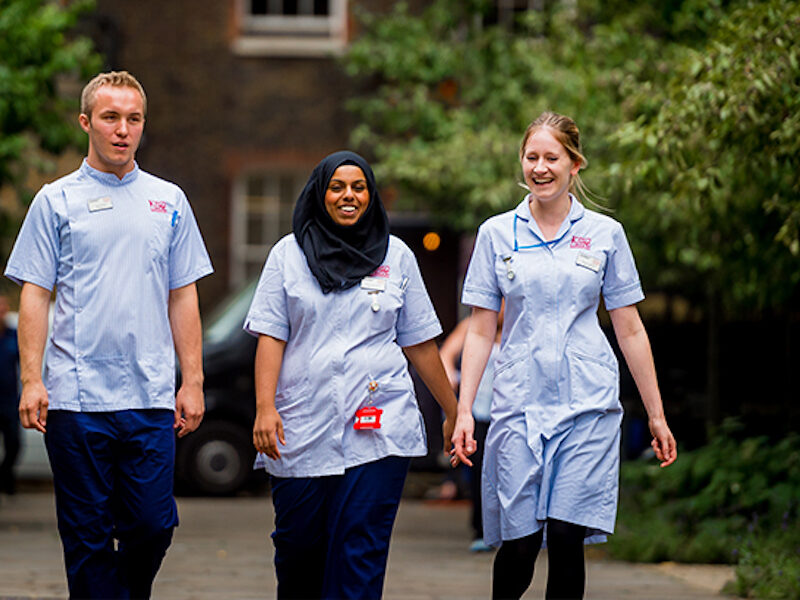
Autumn / Winter 2020
Service to society: International Year of the Nurse and Midwife
In honour of what would have been Florence Nightingale’s 200th birthday, the World Health Organization named 2020 the International Year...
Earlier this year, triple alumna, Dr Sabina Dosani was announced as one of 10 2022 New Generation Thinkers – a scheme run by BBC Radio 3 and the Arts and Humanities Research Council (AHRC). The 2022 New Generation Thinkers scheme supports early career researchers to turn their research into radio. In this feature, Sabina shares her radio project ‘Sound Waves at Sixteen Weeks’ which explores maternal love and loss and compares the language used by obstetricians with depictions by literary women writers.
‘How does hearing a foetal heartbeat make a pregnant woman feel? How might the muffled static of an absent heartbeat shape her grief? These questions are at the heart of a BBC Radio programme, ‘Sound Waves at Sixteen Weeks’, that I am making as part of the BBC AHRC New Generation Thinkers scheme, 2022.
‘Earlier this year, I had the honour of being named as a New Generation Thinker by the BBC. I am a proud King’s alumna three times over, graduating in 2003 with an MSc in Mental Health Studies; then in 2003–06 I was on the Higher Specialist Training (programme) in Child & Adolescent Psychiatry at the Maudsley Hospital and Institute of Psychiatry, Psychology & Neuroscience; and in 2018, I graduated with an MSc in Medical Humanities (with distinction). It was at King’s that my love of the medical humanities was nurtured and encouraged, and I will always be grateful for the amazing teaching and supervision from the Centre for the Humanities and Health.
‘As part of the New Generation Thinkers scheme, I am making radio programmes for the BBC. One programme is based on my literary critical essay, ‘Products of Conception, Imaging and Imagining the Maternal Foetal Relationship’, which considers depictions of obstetric ultrasound in three contemporary works: Queenie (2019) by Candice Carty-Williams, Hilary Mantel’s memoir, Giving Up the Ghost (2003) and Maggie O’Farrell’s personal essay ‘Baby and Bloodstream’, from I Am, I Am, I Am: Seventeen Brushes with Death (2017). In each text, ultrasound represents a contested site where obstetric and maternal narratives collide. I am excited to be using the unique intimacy of radio to convey the aural experiences of foetal heartbeats and their haunting absence and asking how this experience mediates maternal love and loss. Through brief readings, the programme will also explore how the authors I have studied during my PhD offer a markedly different language to the obstetric literature, where miscarriage is a biological process, to be managed and measured. Contemporary women writers offer different metaphors, for example invoking the supernatural, conveying maternal grief in the language of ghosts and haunted houses.
‘I also took part in a recent programme for Mental Health Awareness week, in which I read a specially commissioned essay on loneliness for the BBC, based on Radclyffe Hall’s The Well of Loneliness. Listen to it here.’
Dr Sabina Dosani is a consultant child and adolescent psychiatrist and a writer. Sabina is writing a memoir, Flesh and Blood, about her experience of recurrent miscarriage while working as a medical expert witness in the family court.

In honour of what would have been Florence Nightingale’s 200th birthday, the World Health Organization named 2020 the International Year...

2020 marked 50 years since the Equal Pay Act was brought into law in the UK. Looking back to 1970,...